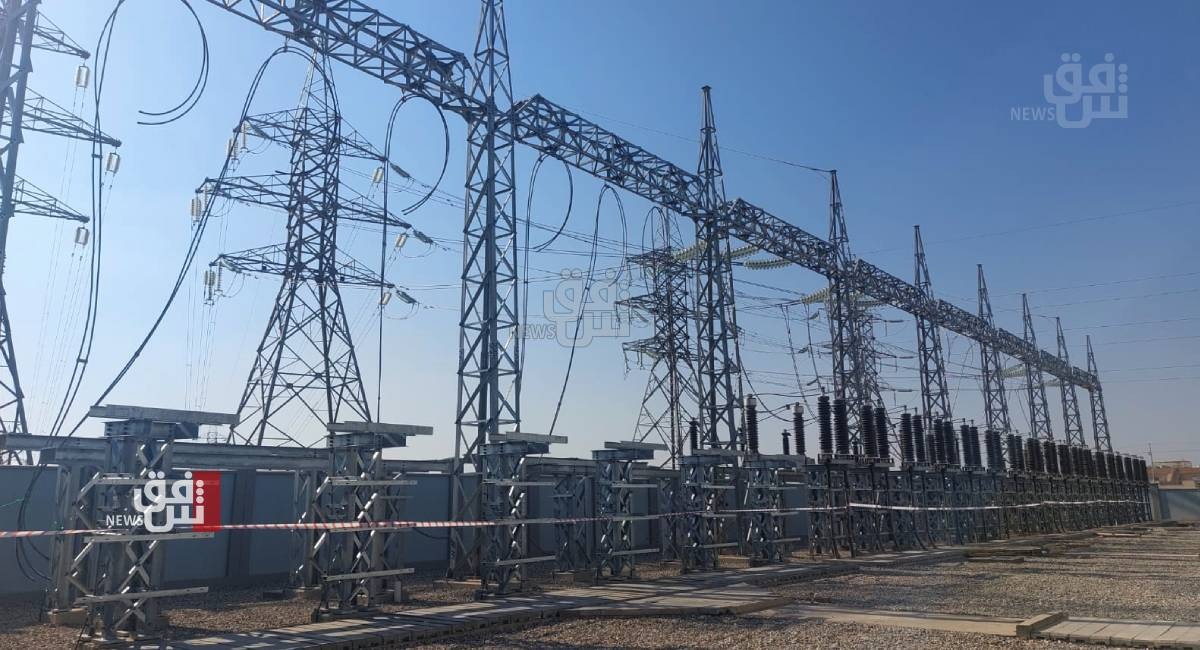2025-05-07T18:20:41+00:00
font
Enable Reading Mode
A-
A
A+
Shafaq News/ Iraq is facing a growing
electricity crisis as soaring summer temperatures collide with the expiration
of US sanctions waivers—cutting off critical gas imports from Iran, experts
warned on Wednesday.
“Iraq has lots of gas reserves, but most
of it is associated with oil production, and their gas transport and processing
infrastructure is underdeveloped,” explained Dr. Paul Sullivan, Professor of
Energy Security at Johns Hopkins University, in an exclusive interview with
Shafaq News.
He urged domestic investment, stating, “The
solution for Iraq is to develop its internal resources and infrastructure for
gas. But that will take some time.”
Iraq currently imports around 50 million
cubic feet of Iranian gas daily—roughly two-thirds of its power generation
capacity—according to government spokesperson Basim al-Awadi. However, the
expiration of US sanctions waivers on March 7 has severely disrupted those
imports, leading to nationwide blackouts.
Sullivan characterized the situation as
“extremely difficult,” warning that Iraq is trapped in a time-sensitive crisis.
While some have suggested switching to floating LNG terminals, he noted, “Even
getting FLNG ships docked and ready to import will take time.”
The professor also pointed out that
Germany was able to adapt quickly after losing Russian supplies, but emphasized
that Iraq faces a very different set of logistical and financial constraints
Dr. Muhyiddin Qassar, a former economics
professor at Northwestern University, said that reinstating the waiver remains
politically uncertain. “Trump could reverse course, but right now he’s using
energy policy as leverage in nuclear talks with Iran,” he observed.
US National Security Advisor Mike Waltz
reportedly told Prime Minister Mohammed Shia al-Sudani during a March call that
ending the waiver aligns with Washington’s broader strategy to pressure Tehran
over its nuclear and regional activities.
Meanwhile, Iraq’s Ministry of Electricity
reported current generation capacity at 28,000 megawatts—far short of the
estimated 50,000 megawatts needed to meet peak summer demand. The resulting
shortfall is already causing grid instability and power outages.
Iraq is now evaluating LNG imports from
Qatar and Oman, and pipeline gas from Turkmenistan. However, Sullivan cautioned
that gas from Turkmenistan would likely need to transit through Iran—a route
now politically complicated. “That doesn’t seem feasible at the moment.”
While the Iraqi government has expressed
a long-term goal of gas self-sufficiency, Sullivan stressed the urgency of
acting on multiple fronts. “With serious investment, it’s possible over the
long term. But they need to move fast and pursue parallel strategies, including
storage development and alternative generation sources.”
Some analysts have proposed
waste-to-energy or geothermal power as part of Iraq’s long-term strategy, but
Sullivan noted those are far from immediate fixes. “Those also take time to set
up.”
He also warned that Iraq’s energy
vulnerability could be exploited by destabilizing actors. “Iraq is between a
giant rock and a very hard place. The region is a mess. It will get worse if
Iraq tumbled into more turmoil.”
Sullivan expressed cautious optimism that
upcoming US-Gulf meetings could deliver solutions. “The region needs a stable
Iraq. Leadership knows that.”
For Shafaq News, Mostafa Hashem, Washington, D.C.
